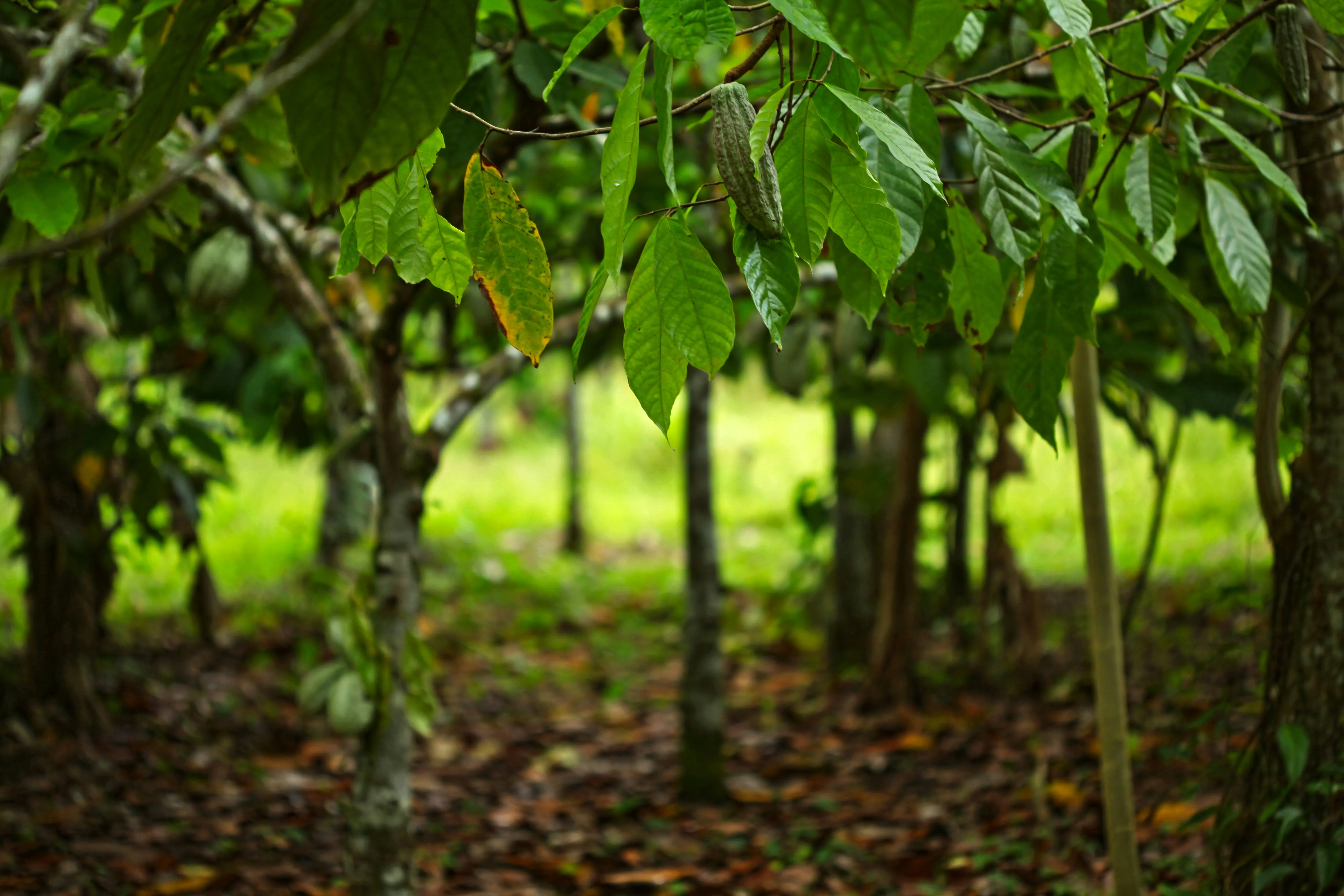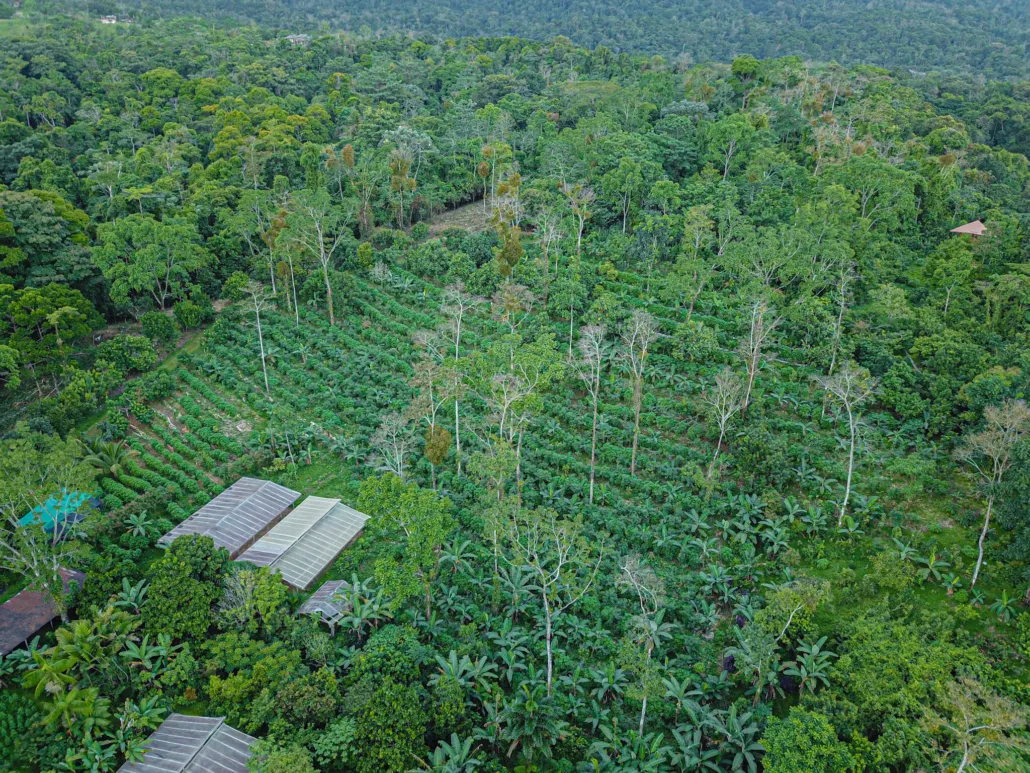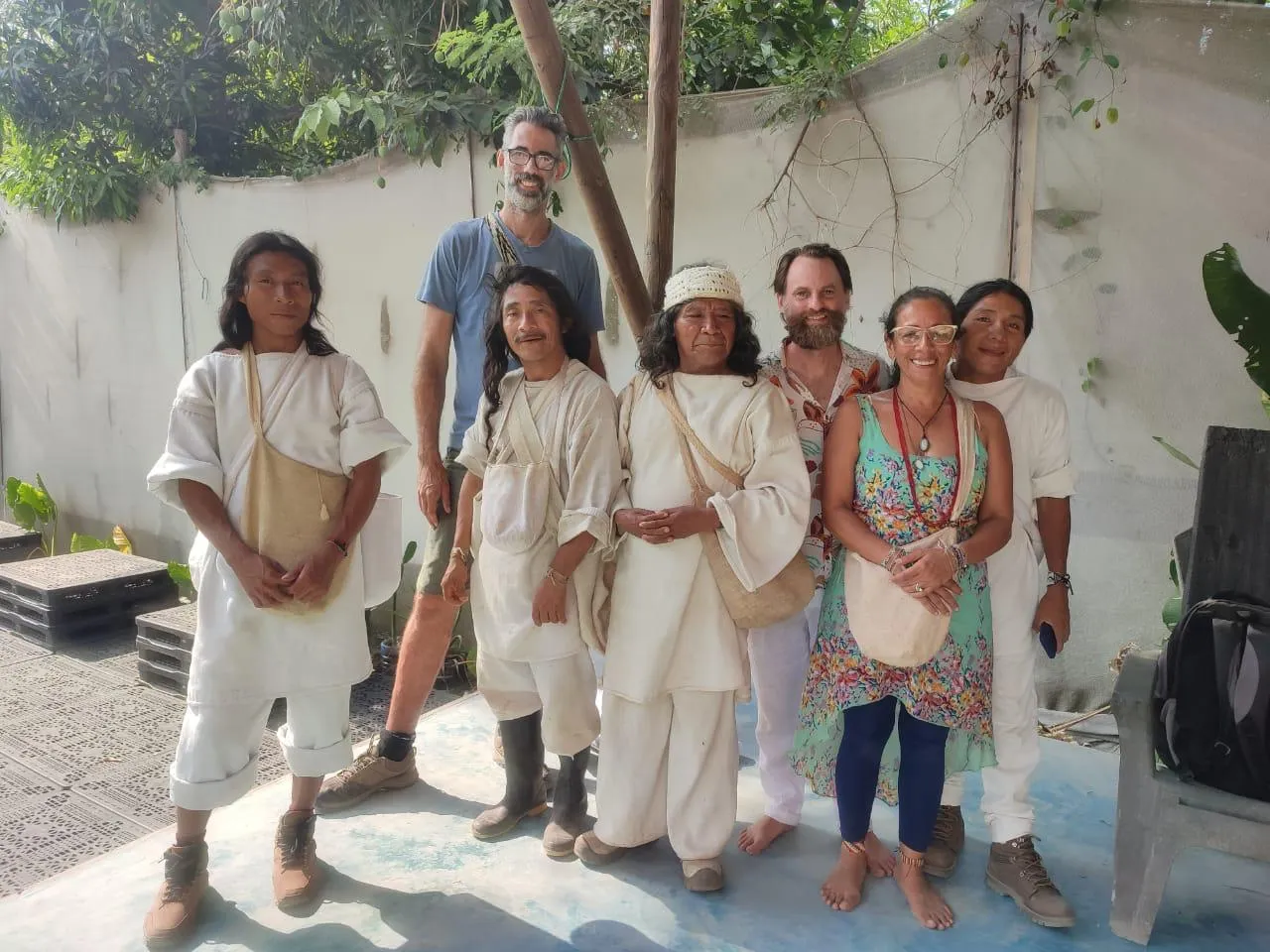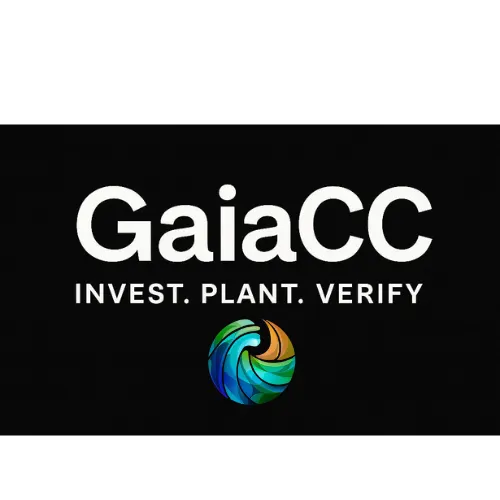"Restoring Ecosystems, Strengthening Communities."
GaiaCC partners with indigenous and farmer-led organisations to regenerate ecosystems that enhance biodiversity, restore soils, and improve community wellbeing. Every project follows a rigorous framework — from baseline assessments to long-term monitoring — ensuring measurable, reportable, and verifiable outcomes.
Our Approach

Baseline Assessment
Before a single seed is planted, our team conducts a full ecological and social baseline:
• Soil carbon and soil health
• Biodiversity indicators
• Water and landscape dynamics
• Community priorities and cultural context
This establishes the “before” picture that all impact is measured against.

Regenerative Implementation
Projects blend agroforestry, reforestation, and ecosystem restoration approaches, using:
• Native species
• Productive crops such as cacao
• Water-retention and microclimate systems
• Community-led land stewardship practices
Each project is co-designed with local partners, ensuring long-term economic and ecological resilience.

Continuous Monitoring & Reporting
Our monitoring framework integrates:
• Biodiversity surveys
• Soil carbon measurements
• Remote sensing
• Community and social impact indicators
Projects are verified under leading frameworks such as CSRD, TNFD, and ESRS, ensuring compliance-grade reporting for corporate partners.
Pilot Project: Sierra Nevada de Santa Marta, Colombia
The pilot aims to restore degraded land while strengthening the ecological and cultural resilience of Indigenous and farmer communities. This includes introducing regenerative agroforestry models, reforesting native species, and rebuilding soil health.
Project Purpose
The pilot aims to restore degraded land while strengthening the ecological and cultural resilience of Indigenous and farmer communities. This includes introducing regenerative agroforestry models, reforesting native species, and rebuilding soil health..
What We’re Implementing
• Cacao-based agroforestry systems
• Native tree reforestation
• Soil regeneration using organic inputs
• Water and microclimate restoration practices
All activities are co-designed with local partners to ensure cultural alignment and long-term adoption.
How We Measure Impact
As a pilot, this project is helping us refine our full MRV framework. We are currently measuring:
• Soil organic carbon
• Biodiversity presence
• Land-use change through remote sensing
• Community wellbeing indicators
These baselines establish the foundation for future comparable metrics.
Why It Matters
This pilot project validates the GaiaCC model: that regenerative systems can restore ecosystems, support local economies, and provide corporates with high-integrity, verifiable ESG outcomes. Insights from this pilot directly shape the design of all upcoming GaiaCC projects.



